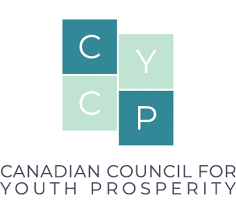December 3, 2020
How can we #BuildBackBetter?
Last week, MENTOR Canada participated in the first FUTURE OF GOOD Summit to learn more about the outlook for the charitable, philanthropic, and not-for-profit sector and how we can #buildbackbetter. It was an uplifting and energizing event and a great chance to connect to other leading Canadian minds interested in creative solutions to improving Canada post-pandemic.
For us, the two most important conversations were:
1) Youth, social impact work, and mental wellbeing, in partnership with RBC Future Launch.
2) Fixing the digital disparity across Canada, in partnership with CIRA. For the mentoring movement in Canada, both of these topics have guided our work.


To help bridge the digital divide, January 2021 we are preparing to launch our free e-mentoring platform which will help youth in Canada to benefit from access to virtual mentoring relationships. The platform we have chosen to adapt has been proven to work with limited connectivity which will assist us in reaching even more rural, remote, and northern youth.
To help improve mental wellbeing, we are expanding access to tools and resources to improve quality mentoring opportunities.
Our Mentor Connector will help more mentors and mentees connect with mentoring experiences, online or in their community.
Our free Online Mentor Orientation will help more volunteers adopt a mentoring mindset.
Our soon to be released research, as to the state of mentoring in Canada for young people, service providers, and the general public will help all of us make practice improvements that strengthen mentoring relationships and help ensure we can reach your young people especially those with complex needs.

Mental Wellbeing
Here are a few highlights from the Mental Wellbeing speakers at Future Of Good
HIGHLIGHT 1
Before COVID-19 overwhelmed Canada, 2020 was already proving to be a traumatic year. Kathy Hay, CEO of Kids Help Phone, said their staff dealt with waves of youth seeking help after the Australian wildfires, Iran's destruction of a passenger jet, and Kobe Bryant's sudden death. Their data also shows kids experiencing racism were also the most likely to speak about suicide. In 2019, the service had 1.9 million "interactions." As of last week, their 2020 figures are closer to 4.25 million. "That is a massive, massive uptick," Hay said.

HIGHLIGHT 2
Youth are expecting more from their employers. Gladys Okine-Ahovi, executive lead at the Canadian Council for Youth Prosperity, said youth want to contribute during the COVID-19 pandemic, but also want responsive and sympathetic bosses. "They want to make sure that they're being heard when they're expressing concerns and they want that empathy to be addressed," she said. Employers should be willing to offer mental health support and other assistance in new ways, including to part-time and casual workers who are often young — and often excluded.

Want to learn more about the future of mental wellbeing? Read these Future of Good stories.
Digital Divide
Here are a few highlights from the speakers about the digital divide in Canada
Highlight 1
Step one to closing the digital divide, all the speakers agreed, is reimagining the internet as a public utility — or even a human right — rather than a nice-to-have. "We have to stop thinking of the internet as a commodity," said Fiona McKean, founder and chair of Thistledown Foundation. "It isn't a car." Civil society's role in this, said Laura Tribe, executive director of OpenMedia, is advocacy: making sure the communities without access to the internet are heard by policymakers, to help them understand the issue at a human level.
highlight 2
And who are those communities? "The pandemic has forced us into a virtual existence, on top of which everything sits," said Kamau Bobb, global head of diversity strategy and research at Google. "Without the internet, you can’t participate. You’re relegated to second class." As such, COVID-19 has not only widened the digital divide: it has also worsened pre-existing racial and socioeconomic inequities in our societies.
highlight 3
On top of building new internet infrastructure and improving connectivity, ensuring isolated seniors in particular understand how to safely go online is critical. “We can’t sell seniors short here," said Laura Tribe. "The ability to answer a FaceTime call can mean the world to someone. As soon as technology becomes more accessible, it opens up a whole world for them.”
